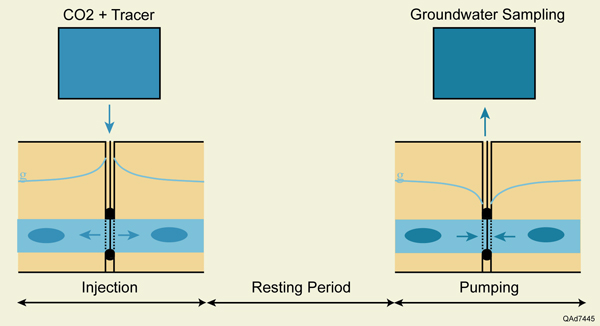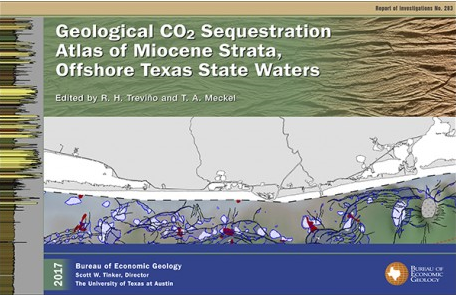WaterRF Project: Research Approach
Objectives
- Assess impacts of CO2 leakage on groundwater quality using field studies based on push-pull tests in a shallow aquifer at a geological carbon sequestration site in the Gulf Coast;
- conduct laboratory batch experiments to determine impacts of CO2 on major and trace elements;
- simulate test results to assess processes, including impacts of CO2 on major and trace elements;
- evaluate which geochemical parameters are most diagnostic of CO2 leakage into USDWs; and
- interact with utilities and regulators to communicate results of this study and to provide input to regulations.
Methods
Impacts of CO2 leakage on groundwater quality will be evaluated using single-well push-pull tests (PPTs) (Figure 4) in a sedimentary aquifer on the Gulf Coast. These controlled field tests allow isolation of impacts of CO2 leakage into an aquifer without the confounding issues associated with upward migration of brines with CO2 that can occur when natural systems (e.g. Keating et al., 2009) are evaluated. Methods are generally subdivided into the following tasks.

Figure 4. Schematic of push-pull tests, including an injection phase in which CO2 and a conservative tracer are injected into the aquifer, a resting period for reactions to take place, and a pull phase in which groundwater is pumped out of the system.
The following provides background information and the tasks.
- Program Overview
- Background
- Gulf Coast System
- Regulatory Issues
- Significance to Water Utilities
- Research Approach
- Task 1.0: Laboratory Batch Experiments
- Task 2.0: Modeling Design of Field Push-Pull Tests
- Task 3.0: Conduction of Push-Pull Tests in the Field
- Task 4.0: Modeling of Field Experiments
- Task 5.0: Communication
- References
- Quarterly Reports, Publications, and Data



